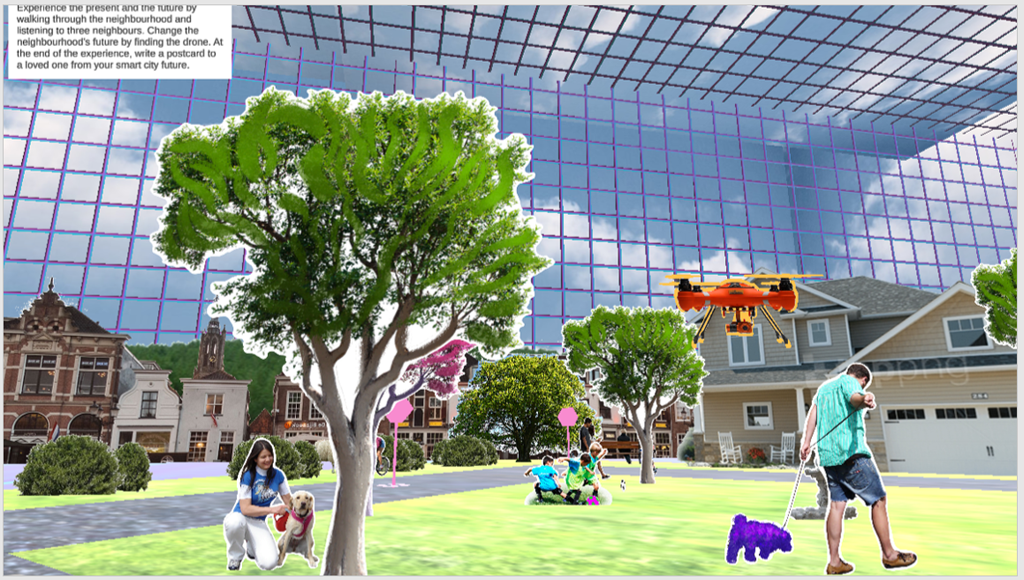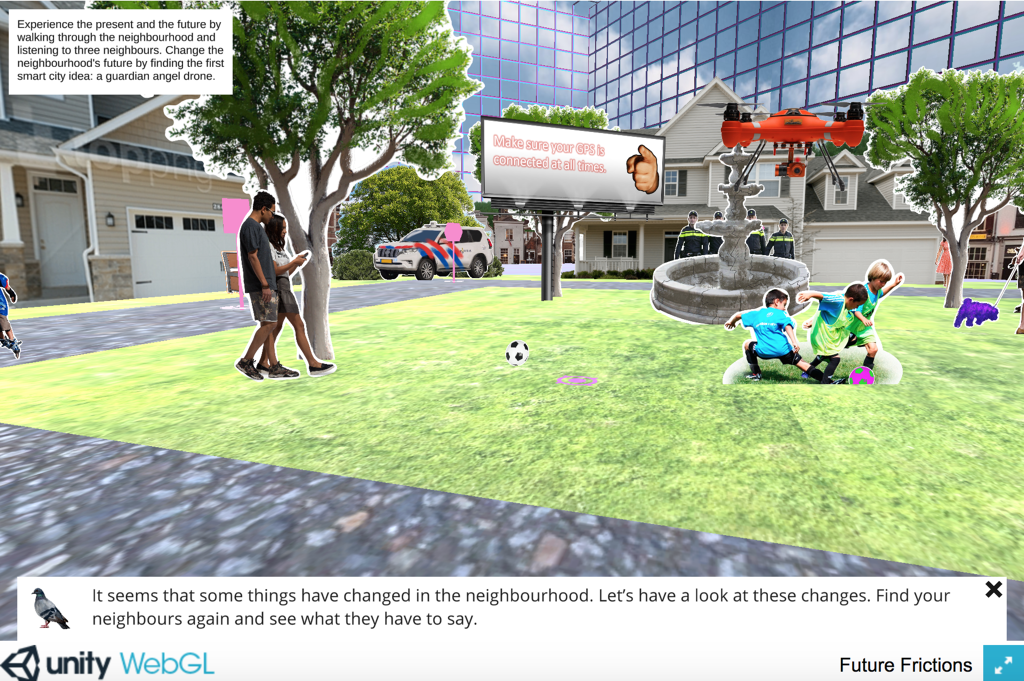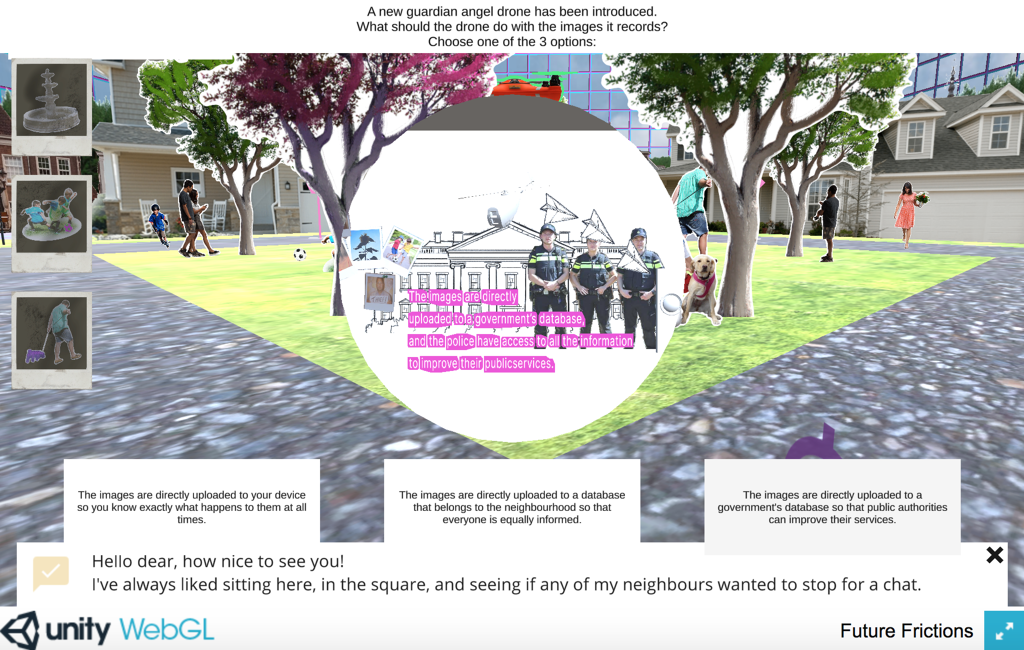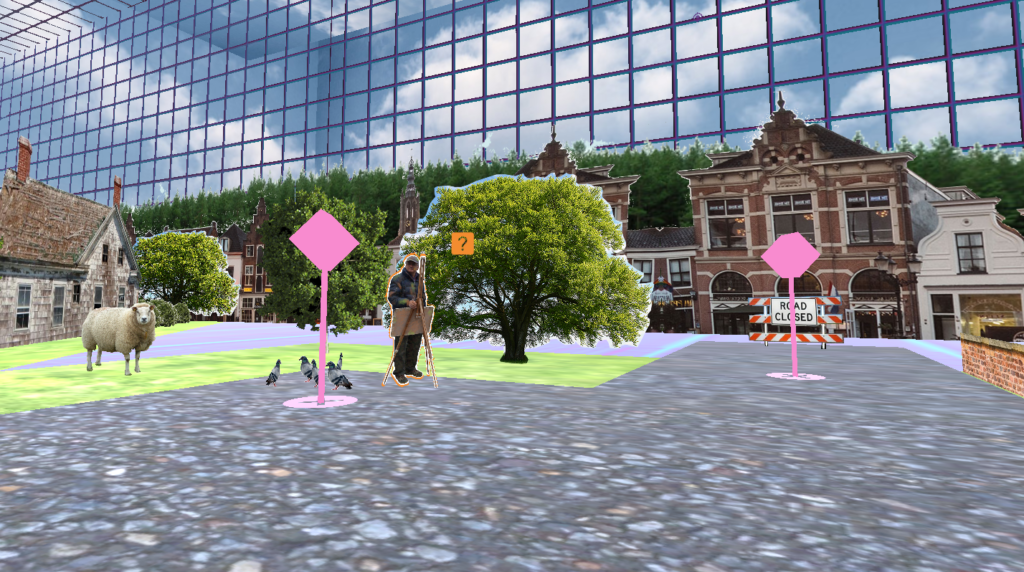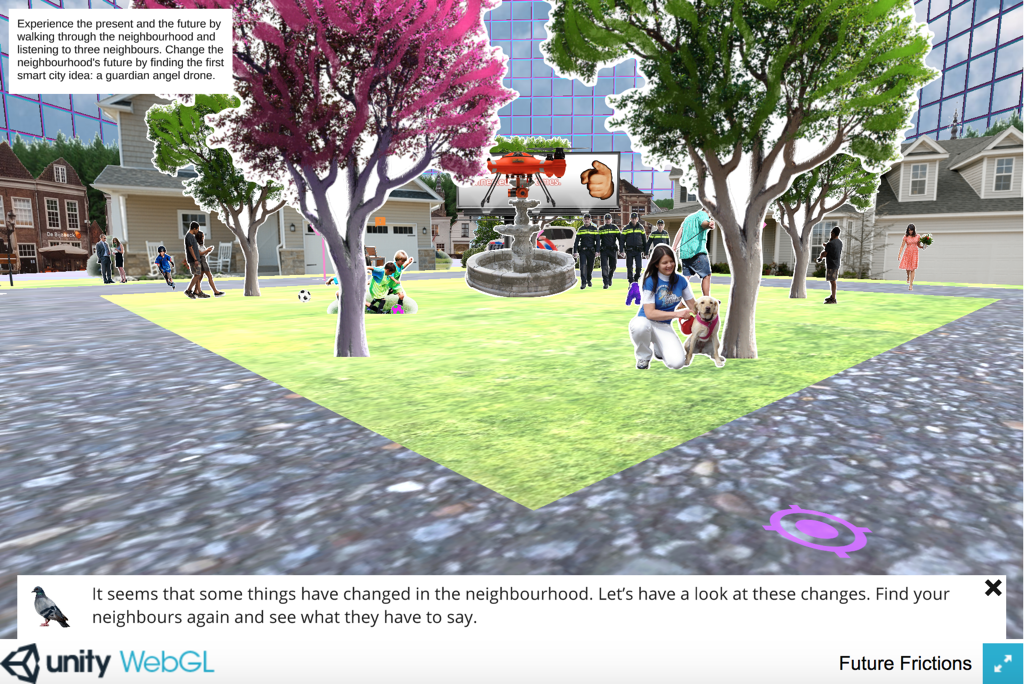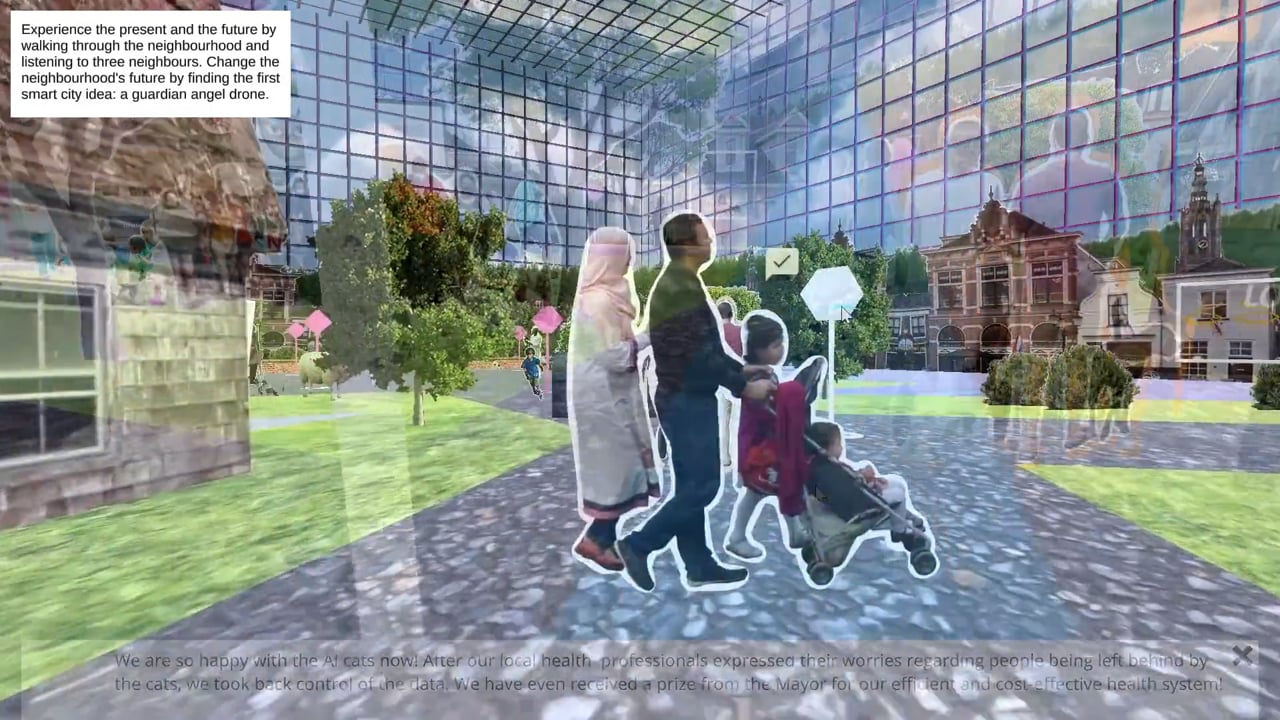Discussions around sustainable urban futures can benefit by engaging different stakeholders with potential controversies that originate from conflicting values, particularly when technology is involved. For instance, smart city technologies and big data are frequently portrayed as the panacea for solving alleged inefficiencies in the urban system and addressing societal challenges such as climate change. However, imaginaries of optimized – and potentially more sustainable – city futures fail to acknowledge potential clashes between individual and collective values, which can lead to controversies and ultimately impact sustainability. Our web experience encourages reflection and debate on the interconnectedness between individual and collective values, and between humans, the city, and technology, all relevant for achieving sustainable practices.
In this interactive web-experience, participants walk around a neighbourhood and interact with different people living in it. While encountering a specific smart city technology (i.e. a drone, AI), they are confronted with making controversial decisions regarding its application that will have consequences in the urban environment and on residents’ daily lives. Based on their choices, the city will change as well as the interactions with and between the people living there.
Future Frictions is an outcome of the project “Designing for Controversies in Responsible Smart Cities”, with input form University of Twente, Utrecht University, and a consortium of public and private partners. Future Frictions emerged through a collaboration between our project and a collective of creative coders; Creative Coding Utrecht (CCU) and Katpatat. CCU is a community of makers with the aim to share knowledge and collaboratively explore the artistic potential of self-made soft and hardware for creating expressions.
Future Frictions encourages reflection and debate on the interconnectedness between individual and collective values in smart cities, and on the impact of technology shaping our urban experience. The project also focuses on the role that critical and speculative design can play to stimulate ethical reflection and civic engagement in complex socio-technical contexts. From a design perspective, the project focuses on the role that critical and speculative design can play in stimulating ethical reflection and civic engagement in complex socio-technical contexts such as smart and sustainable cities, through an immersive web experience.
Remarks
Project team: prof. Mascha van der Voort, dr. Michiel de Lange and prof. Peter-Paul Verbeek. This web experience has been developed with the collaboration of the Design Innovation Group. This research project is part of the research program Designing for Controversies in Responsible Smart Cities with project number CISC.CC.012, which is (partly) financed by the Dutch Research Council (NWO). We thank the rest of our project partners (Aerovision, Future City Foundation, Marxman, Municipality of Amersfoort and Utrecht University) for their valuable contributions to this research project. Thanks to Beatrijs Hinloopen for working on the visuals of Future Frictions.




